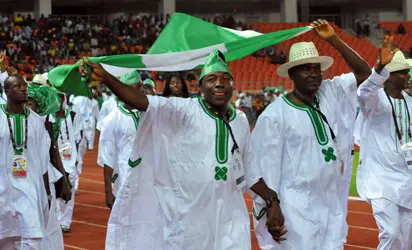I think that deep down, those who rule Nigeria would rather they had on their hands the peace of the graveyard, where rulers do as they pleased and citizens are subjects.
When President Jonathan, the other day, said he was the most-criticized president in the world, lurking behind the assertion was the wish that things were different.
But the truth is that most of the actions and statements of our men (and women) of power indicate that they do not even understand the central kernel of leading a democratic society.
We must remind our powerful rulers, that at the heart of the engagement they have with us as CITIZENS of a democratizing country (not yet a democracy!), is what Locke called a Social Contract, and Nigeria’s 1999 Constitutions’Section 15 (5), boldly asserted that the state shall abolish all corrupt practices and abuse of power@. The massive levels of corruption associated with the government of the day, from the fuel subsidy scandal to the one related to pensions, indicate clearly, that this very important demand of the constitution is obeyed only in its breach!
A ruling elite that is mired in the level of corruption and incompetence we deal with in our country today will certainly find the scrutiny of the media particularly unwelcome. Yet, the media cannot do anything contrary to its obligations as enshrined in Section 22 of the Constitution: Athe press, radio, television, and other agencies of the mass media shall at all times be free to uphold the fundamental objective (contained in chapter II of the Constitution) and uphold the responsibility and accountability of the Government to the people.
If this is the constitutional position, how then might we interpret Information Minister, LabaranMaku’s warning to the Guild Editors, two weeks in Uyo, that Nigerians should not take President Goodluck Jonathan’s patience (no pun intended!) for weakness? Maku said it was erroneous to assume that because the president has displayed the capacity to tolerate many things, including criticisms and media attacks, then he was weak and incapable of taking decisions.
Again, the implicit assumption here was that somehow, the president was merely doing us all a favour Ato tolerate many things, including criticisms and media attacks.
What LabaranMaku wants is the closed space inhabited by slaves and subjects, but those who inhabit the real world of democracy are citizens, who must necessarily have responsibilities and duties as well as rights. If those who rule want subjects, they chose a wrong time to be born, because the era of rulers and their subjects died a long time ago, and the fact that those longings for a dead era come to the minds of people like LabaranMaku, a former radical student activist and journalist, reveals the dead weight of consciousness, even when the material basis has long disappeared.
But there cannot be a greater love for closed spaces than the one displayed by Attorney General MuhammedAdoke, in response to renewed calls to examine the On-shore/Off-shore dichotomy. At a recent judicial event, Adoke warned against >overheating of the polity=, with such a debate, saying it was >dangerous=; and furthermore, it had been ruled upon by the Supreme Court.
The presidency had earlier described the debate as mischievous and a closed case. The lovers of closed spaces included the Delta State governor, Emmanuel Uduaghan, who issued threats of re-commencement of activities by the so-called militants of the Niger Delta if such a re-visit was ever contemplated! It was a point he very much expatiated upon, when I asked him a question, apropos of the issue, during the recent Nigerian Guild of Editors Conference, in Uyo. He went on and on about Athe boys@ in the creeks and the fact that they still had their guns.
It is not possible that we can all agree about every topic of social policy in society; least of all one as fractured as Nigeria. But it is important to learn to listen to the other side, without the bitterness, insult and threats which many groups prefer as response to views that conflict with theirs or which rock their sureties and prejudices. There can never be closed spaces barred from discussion in a democratic society. And in my view, what makes democracy a higher level of societal organization than barbarism is that citizens can canvass often different and conflicting ideas, in order, at the end of the day, to find the consensus to build society. Closed spaces might be fashionable and the order of the day in religious doctrine, but it has no place in the construction of a democratic society. It was the Chinese who called for a thousand flowers to bloom and that is precisely what we need to allow, in all the contentious issues of nation building in our country.


